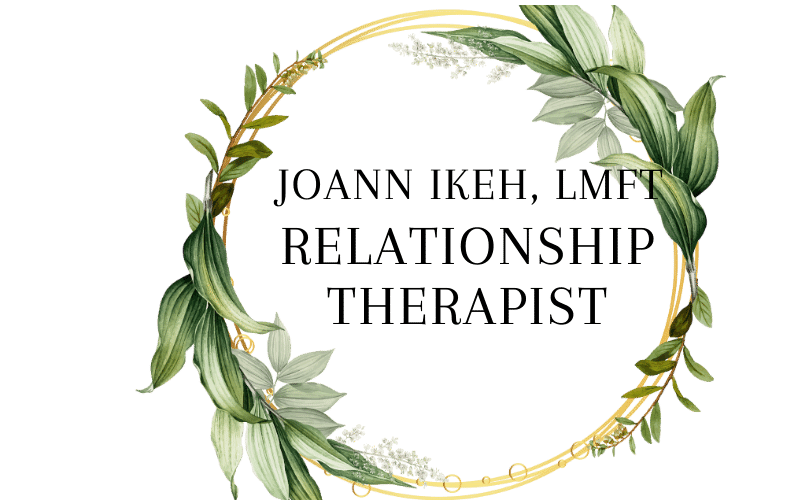Stop Blaming each Other and Build Connection
When Blame Becomes the Default
Most of us know how quickly a disagreement can turn into a blame spiral.
You’re hurt, your partner says something that stings, and suddenly you’re pointing fingers — replaying every old frustration and past mistake.
In that moment, it feels like you’re fighting for fairness. But what usually happens instead is disconnection.
Blame can feel like protection, yet it quietly builds walls between you and the person you love.
In Relational Life Therapy (RLT), we often say: “You can be right, or you can be close.” The goal isn’t to assign fault; it’s to stay connected — especially when things get hard.
Why We Blame
Blaming isn’t a moral flaw; it’s a survival strategy. When you feel misunderstood or unsafe, the nervous system goes on alert.
You might lash out to protect your sense of worth or to avoid shame.
In relationships, this often sounds like:
“You always do this.”
“If you hadn’t said that, I wouldn’t be upset.”
“You never listen.”
These statements might hold truths, but they close the door to mutual understanding. Blame focuses on the other person’s behavior — not on what’s happening inside you.
Instead of saying, “You don’t care,” try, “When you walked away, I felt dismissed and alone.”
That shift — from accusation to ownership — changes everything.
Accountability: The Antidote to Blame
Taking accountability doesn’t mean taking all the blame.
It means pausing long enough to ask, “What’s my part in this?”
When each partner can identify their piece of the puzzle, healing begins.
Accountability is the bridge back to trust because it says: I’m willing to look at myself.
In RLT, accountability is not about guilt or self-blame — it’s about growth. It invites both people to step out of defensiveness and into honesty.
Try asking yourself:
Did I listen with curiosity, or was I preparing my rebuttal?
Did I communicate my feelings directly, or through criticism?
Am I taking responsibility for my tone, timing, and delivery?
Even small moments of ownership soften the atmosphere. They signal emotional maturity — and that makes repair possible.
The Power of Repair
Every couple fights. The difference between thriving relationships and disconnected ones isn’t whether conflict happens — it’s how couples repair afterward.
When you stop blaming your partner, you open space for empathy. You start to see that both of you are hurting, both of you are trying, and both of you want to be understood.
Repair might sound like:
“I got defensive just now. I can see that hurt you.”
“I realize I was trying to win instead of listen.”
“I want to do this differently. Can we start over?”
These simple sentences disarm tension. They turn an argument into an opportunity for reconnection.
Healing Requires Two Truths
One of RLT’s core principles is holding “two truths” at the same time.
Both partners can have valid experiences — and neither one cancels the other out.
You can be hurt and have played a role.
Your partner can be wrong and still deserve compassion.
Learning to live in that both/and space is emotional maturity. It’s what turns relationships from reactive to resilient.
Practical Steps to End the Blame Cycle
Pause before reacting. Notice when your tone sharpens or your body tightens — those are clues you’re slipping into blame.
Shift to curiosity. Ask yourself: “What am I feeling under the anger?”
Name your need. Replace “You never…” with “I need…”
Own your impact. Even if your intentions were good, acknowledge how your actions landed.
Practice repair quickly. The sooner you reconnect, the easier it becomes to rebuild trust.
These steps aren’t about perfection — they’re about practice. Each moment of self-awareness is a small act of love.
Choosing Connection Over Control
When you stop blaming and start owning your part, you reclaim your power.
Accountability isn’t weakness; it’s courage in action.
You stop trying to control your partner and start focusing on what you can control — your words, your tone, your openness to growth.
That’s where healing begins.
That’s where love grows.
In summary:
If you find yourself stuck in the blame game, remember: no one wins when connection is lost. The most powerful thing you can do is look inward. Accountability doesn’t erase pain, but it transforms it into understanding — and from that place, repair becomes possible.
Ready to Build Healthier Relationships?
If you and your partner feel trapped in a cycle of blame, you don’t have to navigate it alone.
At Online Couple Counseling, I help partners break free from unhealthy patterns, strengthen communication, and practice relationship accountability that fosters long-term connection and trust.
📞 Book a free 15-minute consultation today
🌐 Visit onlinecouplecounseling.com
📩 Or email me at joannikeh@joannikeh.com
Let’s work together to break unhealthy patterns and build lasting emotional wellness.



